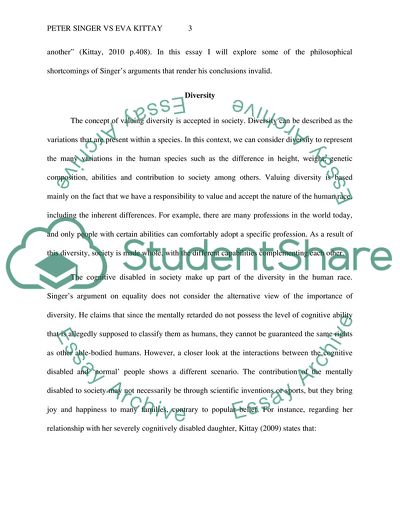Cite this document
(Peter Singer vs. Eva Kittay Essay Example | Topics and Well Written Essays - 2250 words, n.d.)
Peter Singer vs. Eva Kittay Essay Example | Topics and Well Written Essays - 2250 words. https://studentshare.org/philosophy/1872782-peter-singer-vs-eva-kittay
Peter Singer vs. Eva Kittay Essay Example | Topics and Well Written Essays - 2250 words. https://studentshare.org/philosophy/1872782-peter-singer-vs-eva-kittay
(Peter Singer Vs. Eva Kittay Essay Example | Topics and Well Written Essays - 2250 Words)
Peter Singer Vs. Eva Kittay Essay Example | Topics and Well Written Essays - 2250 Words. https://studentshare.org/philosophy/1872782-peter-singer-vs-eva-kittay.
Peter Singer Vs. Eva Kittay Essay Example | Topics and Well Written Essays - 2250 Words. https://studentshare.org/philosophy/1872782-peter-singer-vs-eva-kittay.
“Peter Singer Vs. Eva Kittay Essay Example | Topics and Well Written Essays - 2250 Words”. https://studentshare.org/philosophy/1872782-peter-singer-vs-eva-kittay.


